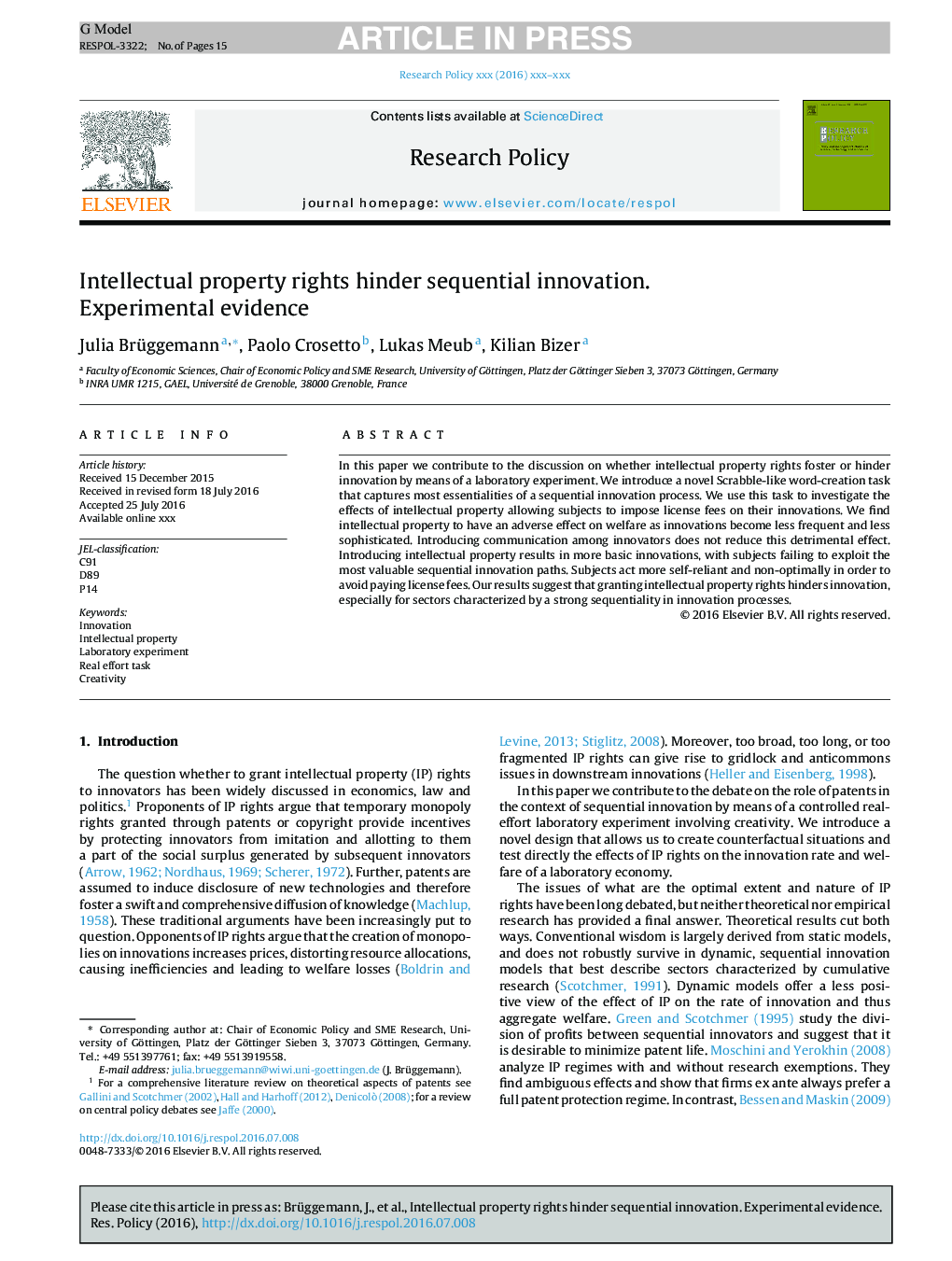| Article ID | Journal | Published Year | Pages | File Type |
|---|---|---|---|---|
| 5104054 | Research Policy | 2016 | 15 Pages |
Abstract
In this paper we contribute to the discussion on whether intellectual property rights foster or hinder innovation by means of a laboratory experiment. We introduce a novel Scrabble-like word-creation task that captures most essentialities of a sequential innovation process. We use this task to investigate the effects of intellectual property allowing subjects to impose license fees on their innovations. We find intellectual property to have an adverse effect on welfare as innovations become less frequent and less sophisticated. Introducing communication among innovators does not reduce this detrimental effect. Introducing intellectual property results in more basic innovations, with subjects failing to exploit the most valuable sequential innovation paths. Subjects act more self-reliant and non-optimally in order to avoid paying license fees. Our results suggest that granting intellectual property rights hinders innovation, especially for sectors characterized by a strong sequentiality in innovation processes.
Related Topics
Social Sciences and Humanities
Business, Management and Accounting
Business and International Management
Authors
Julia Brüggemann, Paolo Crosetto, Lukas Meub, Kilian Bizer,
